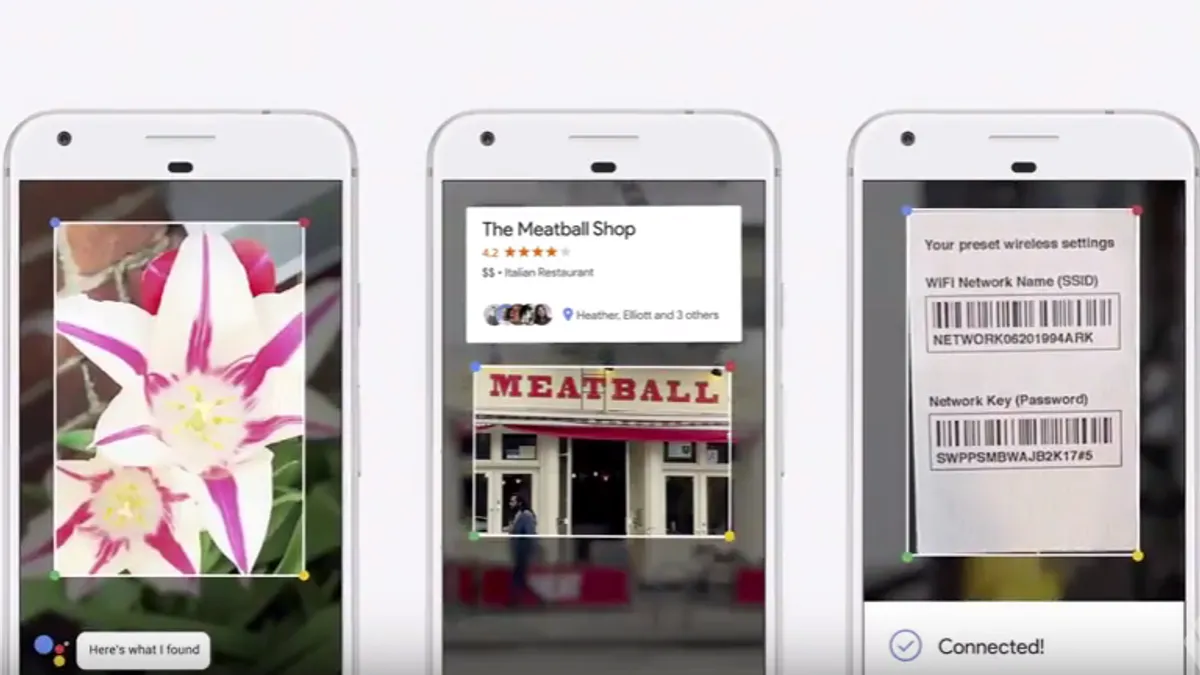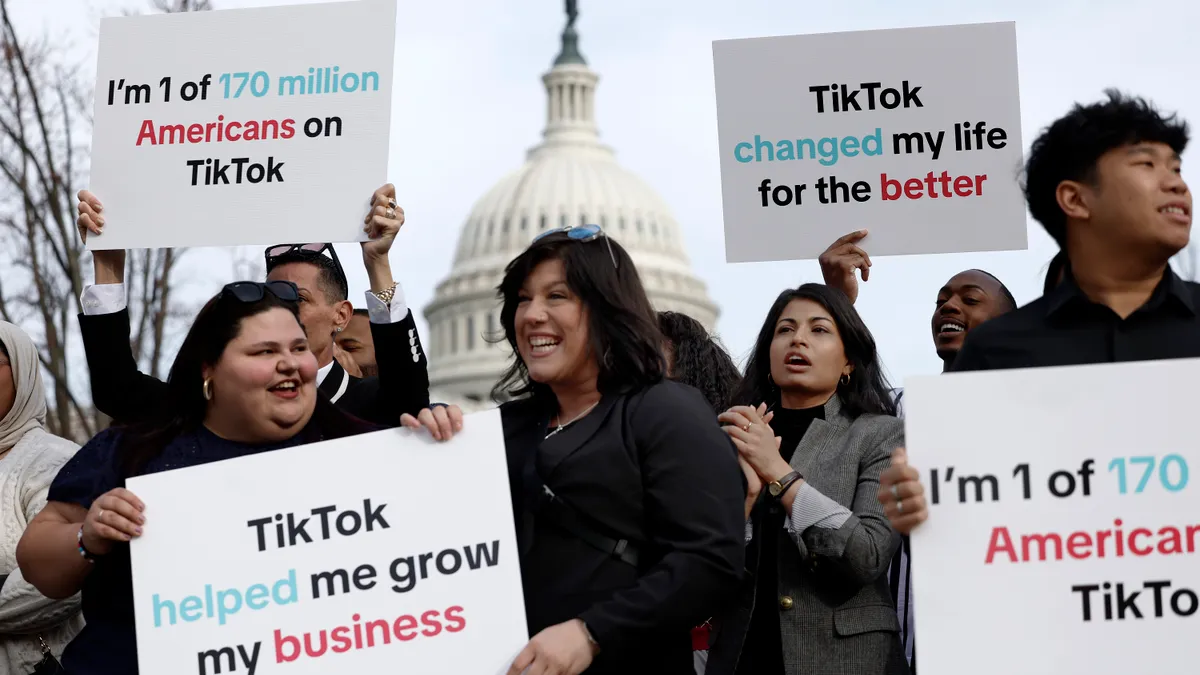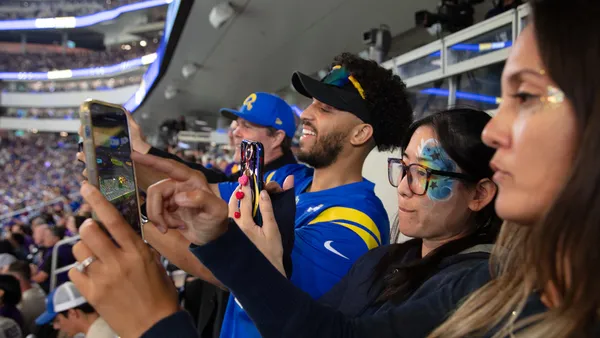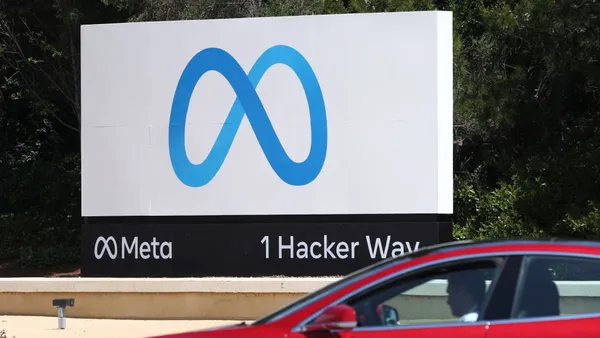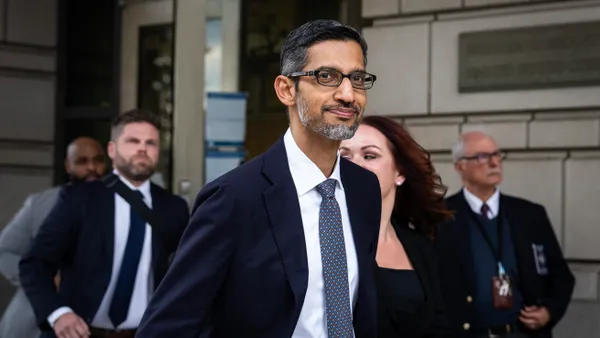Dive Brief:
- Google CEO Sundar Pichai outlined his company's "AI first" future at its I/O keynote Wednesday, drawing parallels to the pivot made toward a mobile-first world years ago. Google will now be focusing on building out artificial intelligence (AI) capabilities across its suite products, as detailed in Recode.
- Google is upgrading its visual search technology with the help of machine vision and a new initiative called Google Lens. Pichai offered a demonstration of Lens' capabilities, showing how a mobile camera pointed at restaurants and storefronts can analyze them and automatically pull up Google reviews and other information on those businesses using Lens.
- Google Assistant, the company's digital assistant, is also getting voice-supported mobile payments and ordering, greatly expanding its commerce potential, Bloomberg reported. Assistant will be able to send users notifications along with any receipts. The full stream of the keynote is available to watch on YouTube, starting at around the 37 minute mark.
Dive Insight:
Advanced AI and cognitive technologies, long anticipated by marketers for their potential in automating some of the mundane and even creative aspects of the business, might accelerate more quickly with broader, deeper integrations across Google's core products — almost all of which are used by hundreds of millions if not billions of people, per Pichai.
Google's announcements point to two key emerging areas for marketers: visual search and voice interactions for AI-driven digital assistants. Machine vision technology might become as sophisticated in categorizing image and video as text-based search is now. Google Lens, which is powered by machine vision, joins other recent innovations from major platforms, including the similarly-named Pinterest Lens.
The technology behind Google Lens behaves in a similar fashion to augmented reality (AR), turning users' mobile cameras into input devices that can overlay virtual information onto real-world objects. This could lessen the friction in omnichannel or location-based marketing efforts while also collecting more granular data on users. Pichai's Lens demonstration underscores the retail potential here, in particular, with the camera analyzing brick-and-mortar storefronts to provide a more detailed digital picture of the shops, reviews included.
Expanding Assistant's e-commerce options pushes the virtual assistant closer to main competitor Amazon Alexa, which has a library of "skills," including ordering abilities, that have helped make it a leader in the space. Bloomberg noted that online commerce might actually be essential for monetizing Assistant, which can't rely on the types of advertisements that have long supported Google's text-based search business; Google is forecast to command close to 80% of total U.S. search ad revenue this year, according to eMarketer.
For another look at Google's I/O event and product announcements, check out Andrew Hutchinson's analysis over at Social Media Today.



